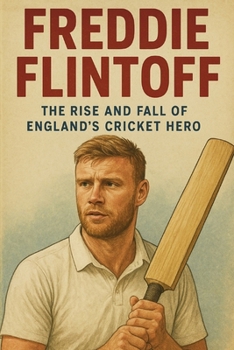Andrew Flintoff: The Rise and Fall of England's Cricket Hero
On a warm August evening in 2005, as the sun set over The Oval cricket ground in London, Andrew "Freddie" Flintoff stood triumphant on the balcony, champagne in hand, the Ashes urn finally back in English possession after sixteen long years. Below him, thousands of fans chanted his name, and across the nation, millions more celebrated the heroics of the man from Preston who had single-handedly transformed English cricket from laughingstock to legend.
Yet this moment of pure sporting ecstasy was just one peak in a career that would prove to be as tumultuous as it was triumphant. The story of Andrew Flintoff is not simply one of cricket success - it is a deeply human tale of extraordinary talent wrestling with personal demons, of a working-class hero thrust into the spotlight, and of a man who would discover that sporting glory, while intoxicating, could never fully heal the wounds that lay beneath.
Born on December 6, 1977, in the industrial town of Preston, Lancashire, Andrew Flintoff emerged from humble beginnings to become one of cricket's most compelling figures. His father Colin was a plumber and factory maintenance worker who captained the local cricket team's second XI. His mother Susan worked as a dinner lady. There was nothing in young Andrew's background to suggest he would one day be mentioned in the same breath as cricketing legends like Ian Botham and Kapil Dev.





